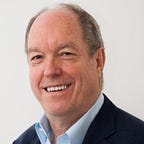Retire or ‘refire’
Always wondered about the process of retirement?
How did we end up with a retirement age based around 65 (and now slowly advancing to 70!). Feels like a hangover from a past where we might have had 15 years of growing up, 50 years of economic activity and a final few years of (as King Lear would have it) ‘while we unburden’d crawl toward death’.
But our current reality is somewhat changed. More like 25 years growing up, a wish of 30 further years of economic activity and then, who knows, a retirement phase of over 25 years. And with life expectancy improving each year you can see increasing pressure on the statutory retirement age.
It was against this backdrop that I had a look at the latest employment figures. They reveal that in the ‘economically inactive category’ 1.17 million* people in the age range of 16 to 64 are retired. Borrowing from another survey (by Sun Life as reported in This is Money) that marks the average age of retirement as 59, it made me wonder how many are happily retired. The Sun Life survey suggests that 18% of those retiring felt they had retired too early, and so mixing the statistics suggests that we could have over 200,000 people wishing they hadn’t!
Some years ago I recall a conversation with a futurist who dismissed the concept of retirement, replacing the term with ‘redirection’. Latterly, a conversation with a fellow advisory board member at Nicer.Group (Anne Adams), introduced an even better concept. Instead of ‘retire’ she urges ‘refire’ and this leads me onto the point of this ramble. Admittedly, we are talking about a relatively privileged slice of the population: those who can afford to think about options for their future.
It seems to me there is a lot of executive talent out there that, having achieved their financial objectives, have retired with a view to travelling, playing golf and spending more time with the family. And I wonder whether that is likely to be enough for a period that might extend to more than 30 years post-employment. Might this valuable resource need to be ‘refired’, to rediscover their personal purpose and focus on a new way of exercising the little grey cells, adding value to communities of their choice?
But identifying ‘communities of their choice’? Not as easy as it might seem. The default seems to be voluntary service of some sort or non-executive directorships. Or it may even end up in the ill-defined world of mentoring future generations.
What if there was a way to ‘refire’ those who would ordinarily be thinking about retirement? An introduction to the possibilities of, who knows, starting a completely new career, or training to be a really good, even expert, mentor. Imagine the energy that could be released from a group of financially accomplished individuals, who have ‘enough’ (a term explored by Charles Handy in his book The Hungry Spirit), and therefore are economically liberated but still want to make a difference. But not any difference, their own difference; their own personal purpose.
And there is the second challenge. Identifying the difference we want to make. Years of corporate life shaped by financial targets can leave us believing that the only difference we can make is one defined by the economics. And there is no obvious pathway to identifying a non-financial difference. And yet, I bet we can all see things that need attention but are not getting it.
If this article had more than a handful of readers, I could see a bulging inbox of protesting voices. ‘There are agencies that already exist that can point people in the right direction’, or ‘my company sponsors pre-retirement courses that meet this need’. However, the truth remains that there is an undiscovered talent pool that with a bit of ‘refiring’ might have the confidence to move into a new (to them) world and enjoy the challenge of discovering new things, learning new skills and adding value that they never realised was within them.
If this was about starting a career as a fresh-out-of-the-box graduate, we could point to career guides, agencies, internships, graduate programmes and similar that can help with making early choices. If we are mid-career there will be career change advisors and others available to guide and prompt. At Telos Partners we have a tried and tested ‘Executive Agenda’ that can help align authentic energy and opportunity. But once we are retired, who can really help?
I had lunch today with an old friend, Anne Isaacs. She has, sort of, retired from a lifetime of career coaching. Anne has a rare gift of really understanding the individual and helping them through a ‘point of choice’ when decisions about their future need careful consideration. And I reckon the ‘point of choice’ to move from ‘retirement’ to ‘redirection’ and even onto ‘refiring’ needs careful consideration. It might be worth a call with Anne.
Let me know if you would like an introduction.
*ONS employment survey 15 February 2022, reporting on the period October to December 2021
